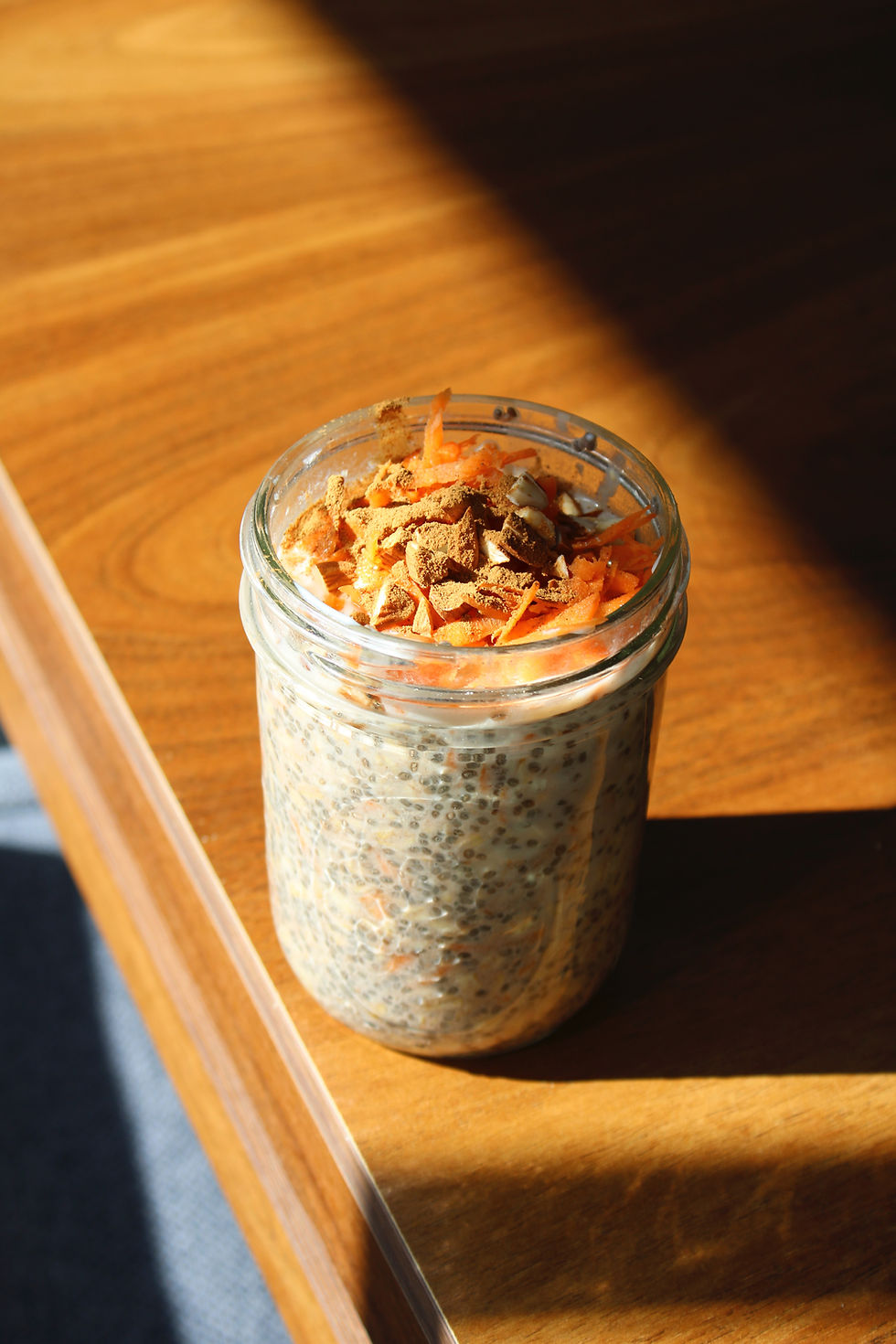The 411 on Overnight Oats
- Megan

- Jul 14, 2024
- 3 min read

Overnight Oats: The Dessert Disguised as Breakfast
Alright, let's stir up some controversy: overnight oats are basically dessert pretending to be a healthy breakfast. Sure, they're trendy and easy to prepare, but that jar of sweet, gooey oats is more like a sugary trap for your metabolism. Here's the hard truth about why your beloved overnight oats might be messing with your insulin response, promoting fat storage, and causing those dreaded blood sugar crashes. Spoiler alert: you might want to ditch them for a savory, veggie-and-protein-packed breakfast instead.
The Dessert in Disguise
First off, let’s talk ingredients. Most overnight oats recipes call for oats, milk or yogurt, and some sort of sweetener like honey, maple syrup, or fruit. Toss in some chia seeds or nut butter for good measure, and you've got yourself a seemingly wholesome meal. But hold up—what you really have is a sugar bomb. Even "healthy" sweeteners like honey and fruit spike your blood sugar.
Insulin Response: The Roller Coaster You Don't Want
When you eat something high in carbs and sugar, your blood sugar levels spike. In response, your body releases insulin to help bring those levels back down. But when this happens too frequently, your body starts to get a little insulin-happy. This means it releases more insulin than needed, which can lead to a quick drop in blood sugar levels—cue the mid-morning crash. Plus, constantly elevated insulin levels can make your body store more fat. So, thanks, overnight oats, for making us feel like crap and helping us gain weight!
Blood Sugar Crashes: The Mid-Morning Slump
After that initial insulin surge, your blood sugar takes a nosedive. Ever wonder why you feel ravenous and sluggish around 10 AM after your bowl of overnight oats? It’s because your body is crying out for more fuel to stabilize those sugar levels. This cycle of spikes and crashes is not only exhausting but also terrible for your overall health.
Fat Storage: The Unwanted Side Effect
Insulin is a storage hormone, meaning it helps your body store excess glucose as fat. When you constantly feed your body sugar and carbs, you're basically telling it to store more fat. It's a survival mechanism from back in the day when food was scarce. But in today’s world, with sugar and carbs everywhere, this mechanism just leads to unwanted weight gain. So, eating overnight oats regularly? Yeah, you're not doing yourself any favours.
The Savoury Solution: Veggies and Protein
Now, let’s get to the good part: what you should be eating instead. A savory breakfast packed with veggies and protein is a game-changer. Think eggs, leafy greens, avocados, tomatoes, and a sprinkle of cheese or nuts. Here’s why it’s a better option:
Steady Energy Levels: Protein and healthy fats take longer to digest, providing a steady release of energy. No more mid-morning crashes.
Balanced Blood Sugar: Veggies are low in carbs and high in fiber, which helps keep your blood sugar levels stable.
Satiety: Protein is incredibly filling, meaning you're less likely to snack on unhealthy foods before lunch.
Nutrient-Dense: Vegetables are loaded with vitamins, minerals, and antioxidants that support overall health.
The Bottom Line
Overnight oats may seem like a convenient and healthy breakfast, but they're more like a dessert in disguise, wreaking havoc on your insulin response, blood sugar levels, and waistline. Instead, opt for a savory breakfast loaded with veggies and protein to keep your energy stable, your blood sugar in check, and your body fueled the right way. Trust me, your body will thank you for it.
See you next week!
Meg


Comments